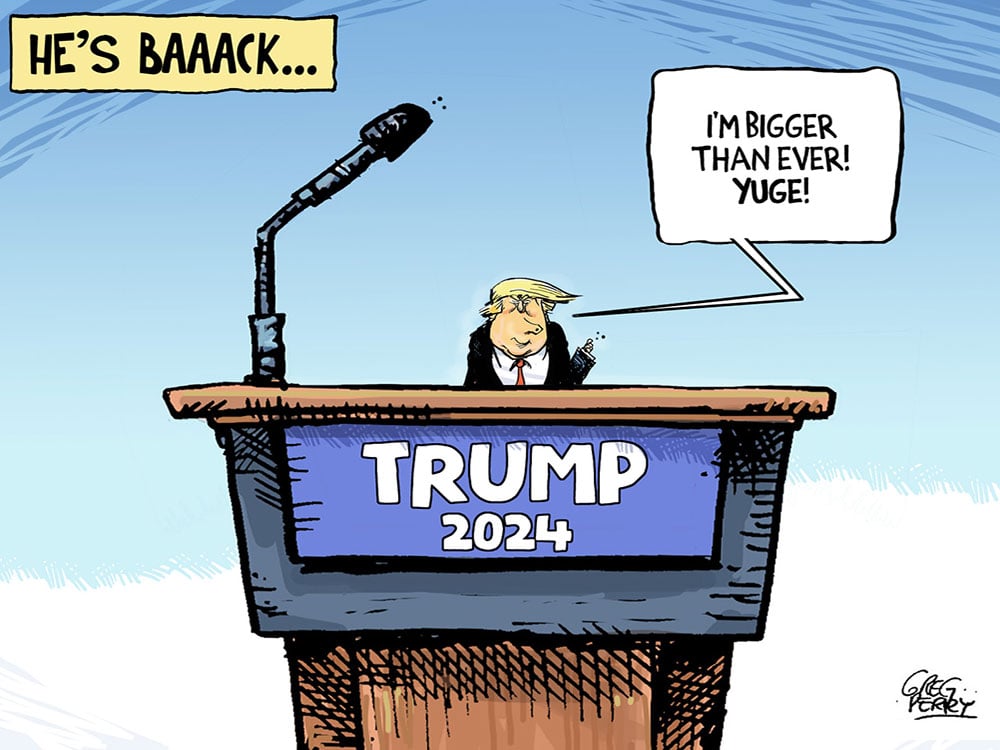FTC Launches Probe Into OpenAI: Examining ChatGPT's Data Practices

Table of Contents
The FTC's Investigation: What We Know
The FTC's investigation into OpenAI's data practices is a significant development, raising concerns about potential violations of Section 5 of the FTC Act, which prohibits unfair or deceptive acts or practices. While the specifics of the investigation remain confidential, the FTC's action suggests serious concerns regarding how OpenAI collects, uses, and protects user data. The scope of the investigation likely encompasses OpenAI's overall data security protocols and the potential for misuse of personal information.
- Specific allegations or concerns: Although not publicly confirmed, the FTC's concerns likely involve the potential for biases in ChatGPT's output derived from biased training data, inadequate safeguards against data breaches, and insufficient transparency regarding data collection and usage.
- Timeline of the investigation: The exact timeline is currently unknown, but the investigation is ongoing, with potential for lengthy proceedings.
- Potential penalties: OpenAI could face significant penalties, including hefty fines and mandated changes to its data handling practices. Failure to comply with FTC orders could lead to further legal action.
ChatGPT's Data Collection and Usage
ChatGPT's popularity stems from its ability to engage in human-like conversations. However, this functionality relies on vast amounts of user data. OpenAI collects various types of data, including:
- Input prompts: Every query or instruction a user types into ChatGPT contributes to the dataset.
- Conversations: The full text of conversations between users and the chatbot is recorded.
- User preferences: While not explicitly stated, implicit preferences are inferred from user interactions.
This data collection raises potential vulnerabilities:
-
Data breaches: The sheer volume of sensitive data held by OpenAI makes it a prime target for cyberattacks.
-
Data misuse: There is a risk of this data being used in ways users haven't consented to, including targeted advertising or profiling.
-
Bias amplification: Data biases in the training data could lead to unfair or discriminatory outcomes from ChatGPT.
-
OpenAI's data privacy policy: While OpenAI has a data privacy policy, its complexity and the nature of AI model training present challenges for users seeking to fully understand how their data is handled.
-
Data use for model training and improvement: OpenAI explicitly uses user data to train and improve its models, but the exact methods remain somewhat opaque.
-
Transparency of OpenAI's data practices: Critics argue that OpenAI's data practices lack sufficient transparency, making it difficult for users to assess the risks associated with using ChatGPT.
Implications for Data Privacy and AI Regulation
The FTC's investigation has significant implications for data privacy and the future of AI regulation. It underscores the urgent need for stronger data protection measures specifically designed for AI systems.
- Existing data privacy regulations (e.g., GDPR, CCPA): Existing regulations like the GDPR (General Data Protection Regulation) and CCPA (California Consumer Privacy Act) provide a framework, but their applicability to AI systems and the unique challenges posed by large language models needs further clarification.
- Influence on future legislation: This case will likely influence the development of new legislation and regulations aimed at governing AI data practices, emphasizing transparency and accountability.
- Impact on user trust: The investigation could erode user trust in AI technologies if concerns about data privacy remain unresolved.
The Future of AI and Responsible Data Handling
The FTC's probe compels the AI industry to prioritize responsible AI development and deployment. This includes:
- Improving data privacy: Implementing stronger security measures, anonymization techniques, and differential privacy methods are crucial.
- Greater transparency: OpenAI and other AI companies should proactively communicate their data handling practices in clear, accessible language.
- Ethical guidelines: The development of robust ethical guidelines and standards for AI development is essential to mitigate potential risks. This includes careful consideration of bias detection and mitigation.
Conclusion:
The FTC's investigation into OpenAI and ChatGPT's data practices highlights the critical need for stronger regulations and ethical considerations in the rapidly evolving field of AI. The outcome will significantly impact OpenAI and the broader AI industry, shaping the future of data privacy and AI development. This case underscores the importance of responsible data handling and the necessity for transparent and accountable AI practices.
Call to Action: Stay informed about the FTC's investigation into OpenAI and ChatGPT's data practices. Understanding the implications is crucial for protecting your data and shaping the future of responsible AI development. Keep up-to-date on the latest developments regarding FTC investigations into AI data practices and advocate for stronger data privacy protections.

Featured Posts
-
 Brooke Shields Candid Admission A Different Life Without Children
May 30, 2025
Brooke Shields Candid Admission A Different Life Without Children
May 30, 2025 -
 Taco Trade Dispute A Detailed Analysis Of Trumps Reaction
May 30, 2025
Taco Trade Dispute A Detailed Analysis Of Trumps Reaction
May 30, 2025 -
 San Diego Weather 4 Day Forecast Of Warm Sunny Conditions
May 30, 2025
San Diego Weather 4 Day Forecast Of Warm Sunny Conditions
May 30, 2025 -
 Sunnova Energy Faces Setback Trump Administration Cancels 3 Billion Loan
May 30, 2025
Sunnova Energy Faces Setback Trump Administration Cancels 3 Billion Loan
May 30, 2025 -
 Ticketmaster Sin Servicio Causas Y Actualizaciones 8 De Abril Grupo Milenio
May 30, 2025
Ticketmaster Sin Servicio Causas Y Actualizaciones 8 De Abril Grupo Milenio
May 30, 2025
